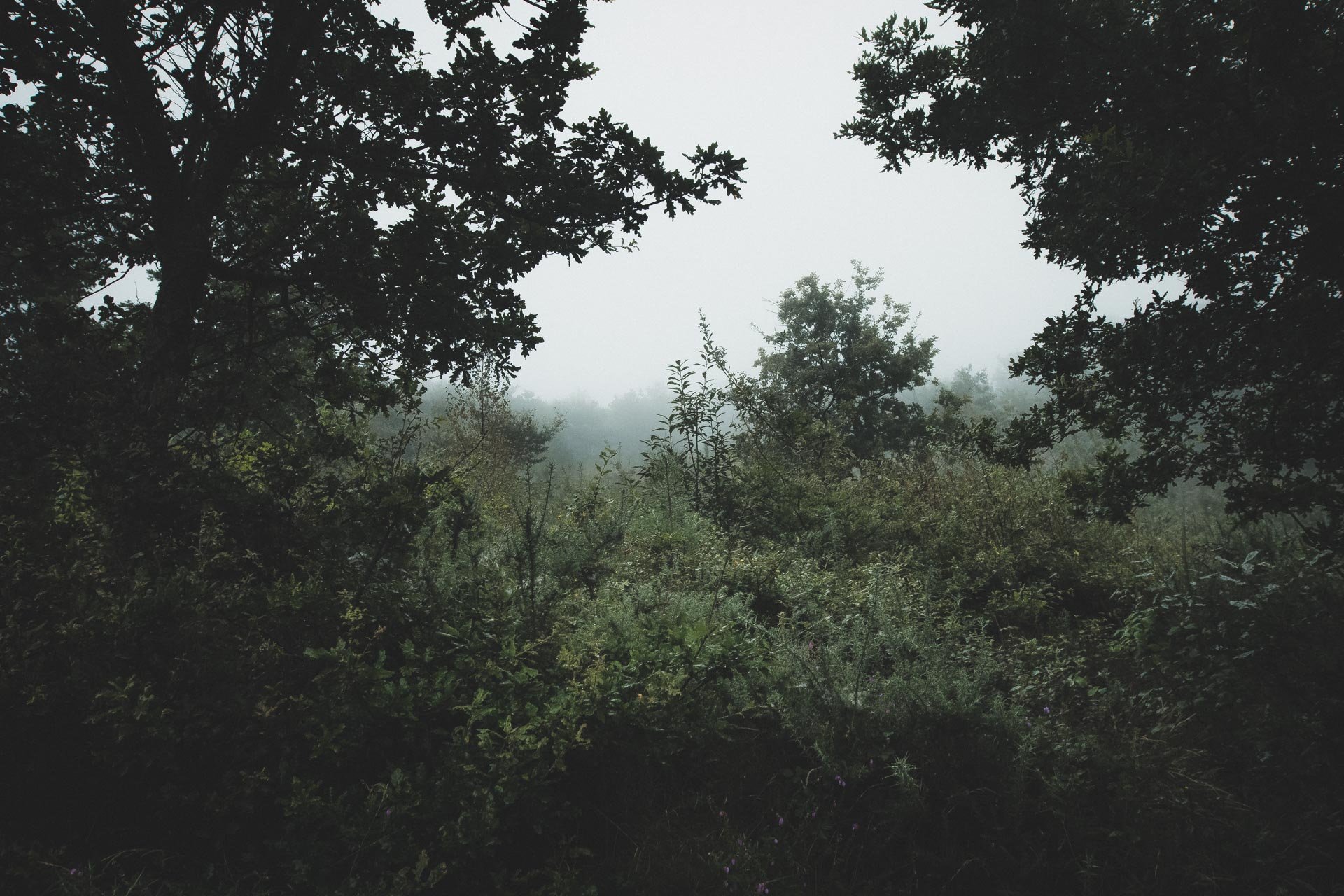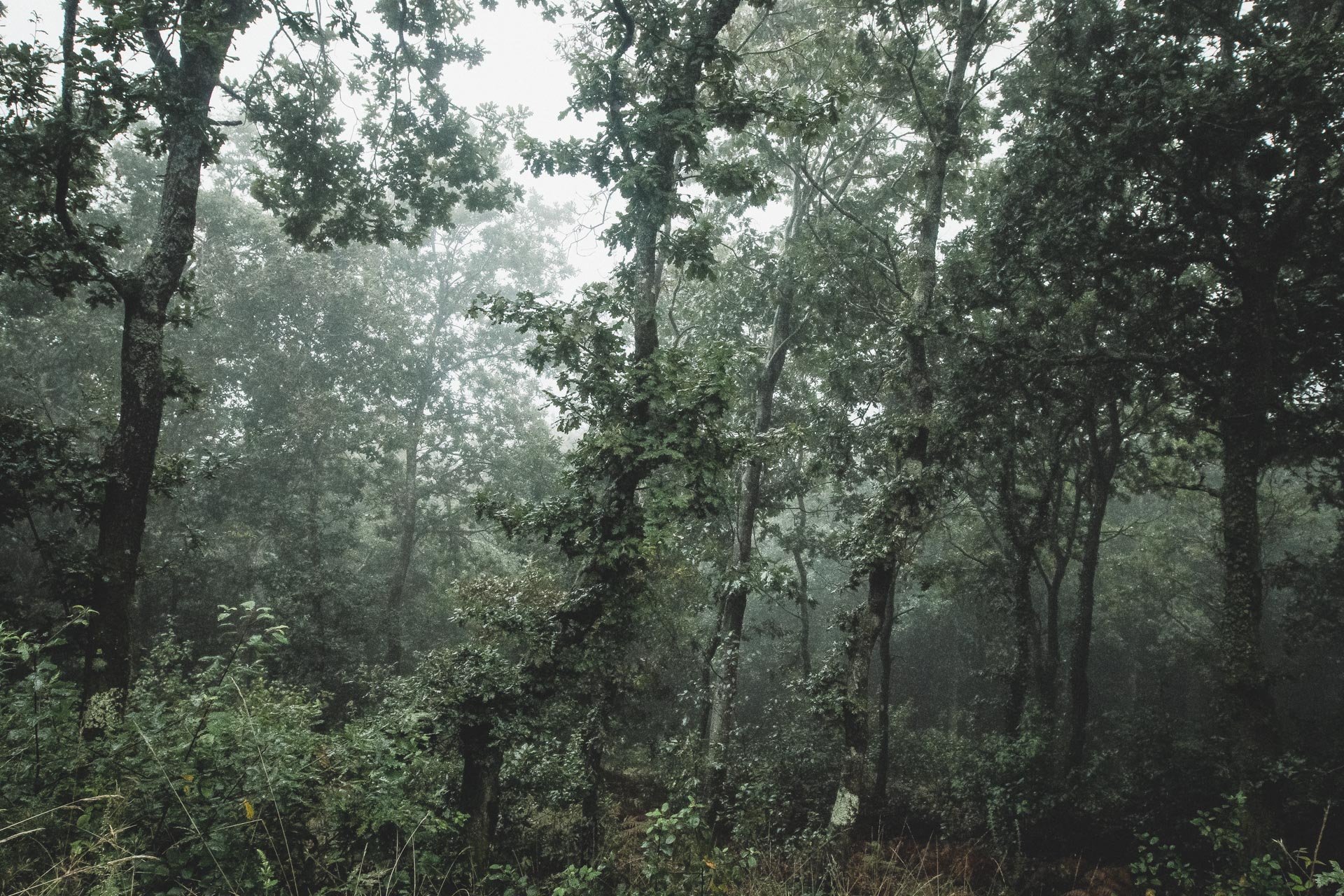Maldito Oro Verde
November, 2021 | Written by Nicolás Rulfo & Edited by Mar León
Have you ever wondered what is the process for paper companies to supply the world with their product? Over time the paper industry has been expanding, as a measure to meet the demand for paper that society requires. The production of paper is strictly connected to the growing of trees. If this is not done through a regeneration plan, overplanting and change of use of land will be detrimental for soil strength and fertility. As a solution to dry and acidic land, these companies go in the search of new natural spaces. This causes serious problems as we slowly witness the acidification of the most fertile and richest parts of the planet.

The production of paper consists of the maintenance of monoculture farms.
Monoculture refers to large-scale plantations of a single species, with the same patterns, using the same cultivation methods for the entire plantation, making large-scale production more efficient.
In the last 30 years, Portugal and Spain became two of the 5 largest paper producers in Europe. This is thanks to one of the most extensive Eucalyptus artificial plantations in the world; A tree that is 15,744 km from its native land: Australia. The Eucalyptus has more than 600 different species, but only two of these found favorable conditions in the Iberian soil. Currently, it is estimated that the approximate distribution of Eucalyptus plantations in the Iberian Peninsula reaches 1,406,000 ha. Being massively planted for monetization means this tree is economically relevant and generates around 17,400 direct jobs and more than 90,000 indirect ones.
Image: Eucalyptus
Paper companies expand their production by renting spaces on private land through contracts that last around 30 years. In these, it is stipulated that the owners of the territories fully compromise to take care of these plantations in exchange for a monthly rent. Most of the land dwellers agree that planting a tree that doesn’t get in their way is beneficial, as long as they are paid for it. But after thirty years of Eucalyptization and acidification of the soil, their lands will no longer be used for agriculture needs; In return they will face a devaluation of the property.
Companies are not forced to buy land for planting, but instead choose to rent it out. In this way, those who accept protect the crops while companies are unconcerned. In this way, the company achieves its goal after spreading misleading promises that will affect the communities in the long term.
The problem is the following; Borders are limits designed by humans, but that does not mean that these can adapt to the free behavior of nature. Eucalyptus plantations without planification leave behind a very large ecological footprint. The seeds are highly adaptable, and spread on the same massive scale as in a monoculture farm, but this time in a random fashion. In other words, the tree grows in non correspondent areas, becoming a pest within a territory that is not designed to coexist with it. Thus, it takes the space of the original flora, destroying entire forests, leaving them without space and resources. This causes an allelopathic effect, whereby soil poisoning decreases the floristic population and this results in fewer pollinator visits.
Among the dangers of homogeneity are responses to disease, fire, and genetic contamination. "There are species (such as pine and eucalyptus) that are adapted to the frequent appearance of fires and this allows them to survive in these environments where fires occur periodically," Adolfo Cordero, professor of forest ecology at the University of Vigo, Spain.
In the case of large-scale plantations, many trees susceptible by a fire are planted in a space filled with a highly combustible plant. "The same thing happens with the seeds: they survive. And, in the case of pine, the high temperatures make the pineapple open and more seeds colonize the place, which in the next generations will dominate the landscape", he adds.
“They are what we call pyrophytic plants, or fire lovers. When this is combined with regular uses of fire to control vegetation - and a favorable climate (the spread of fire), the mixture can become explosive”.
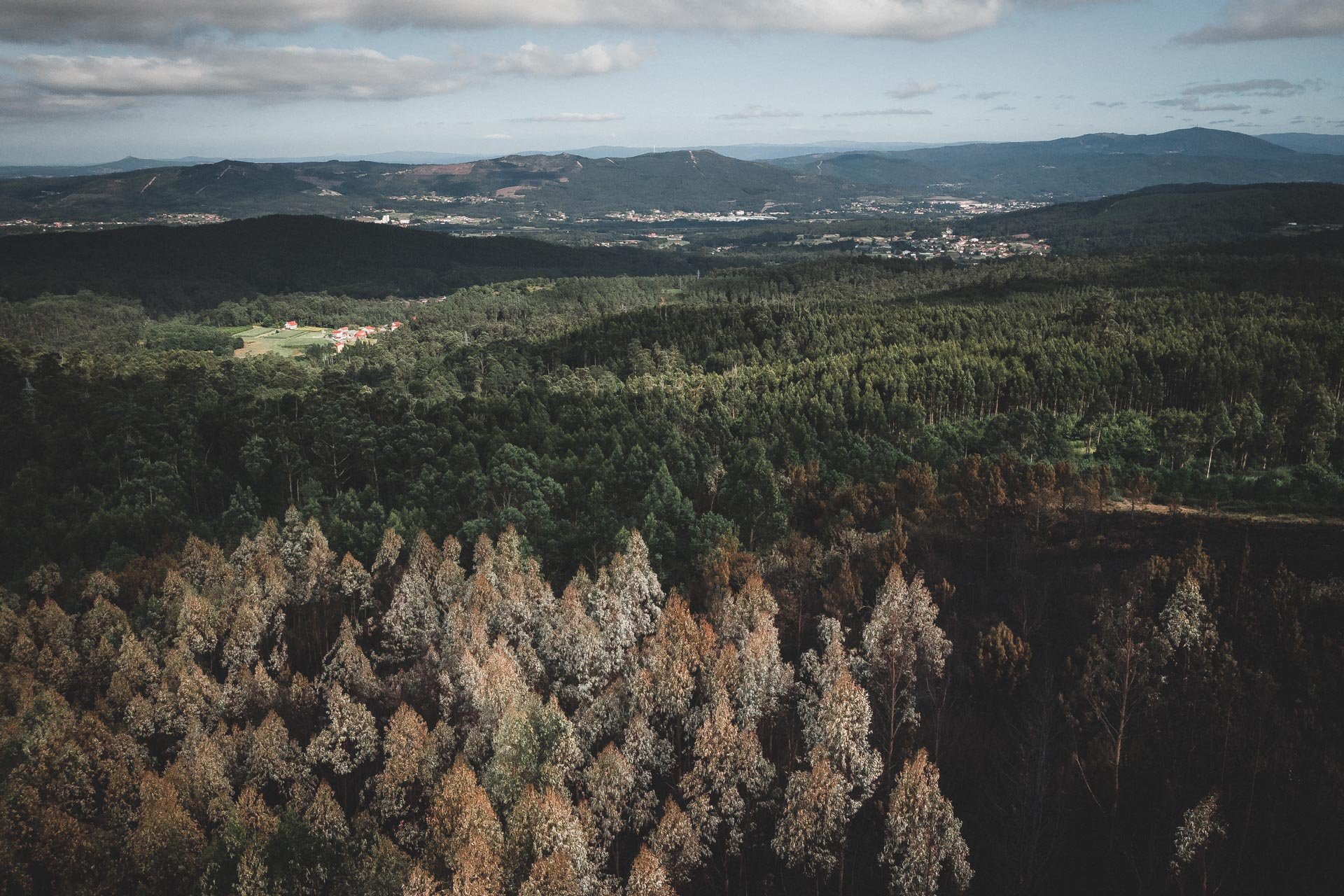
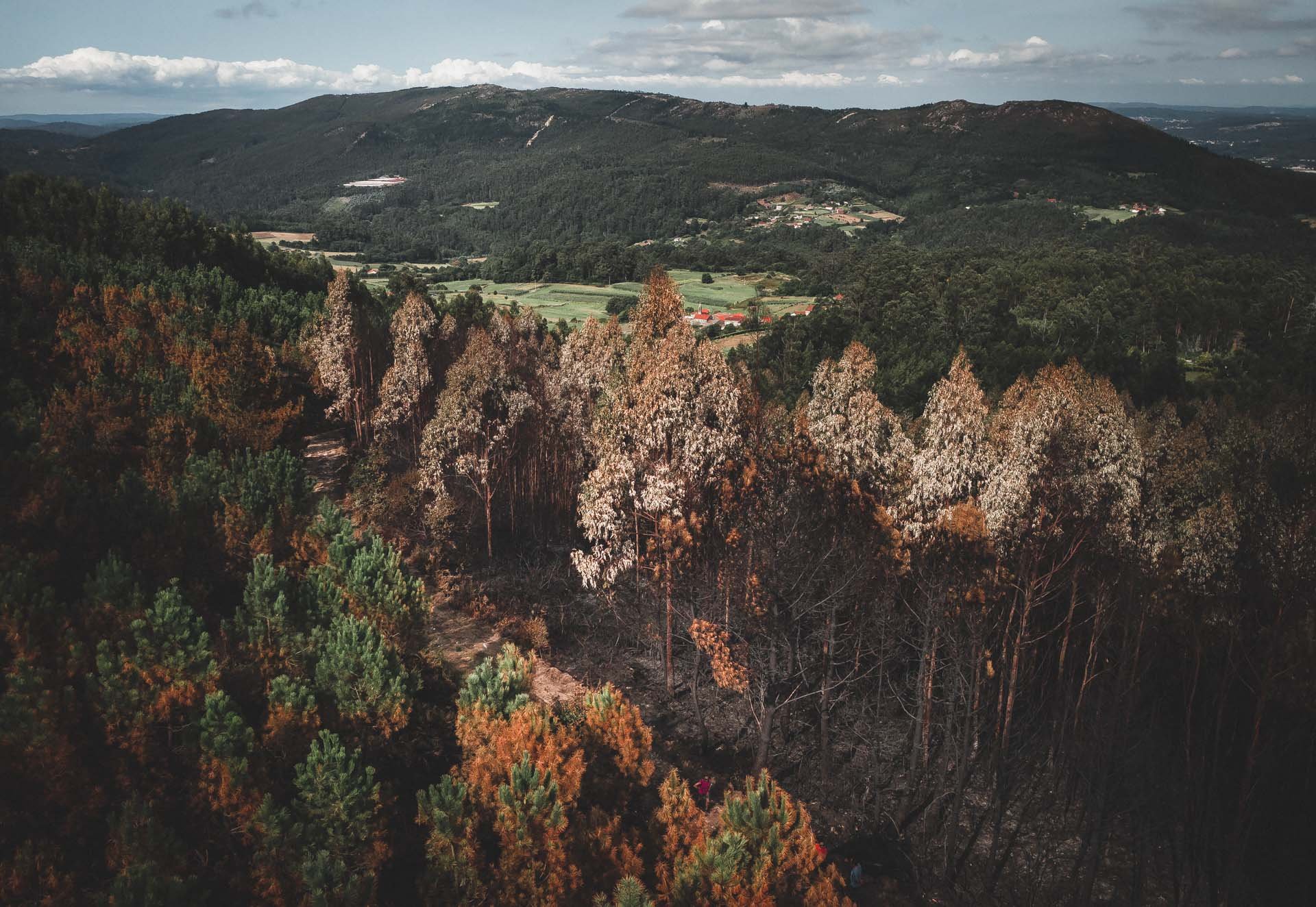
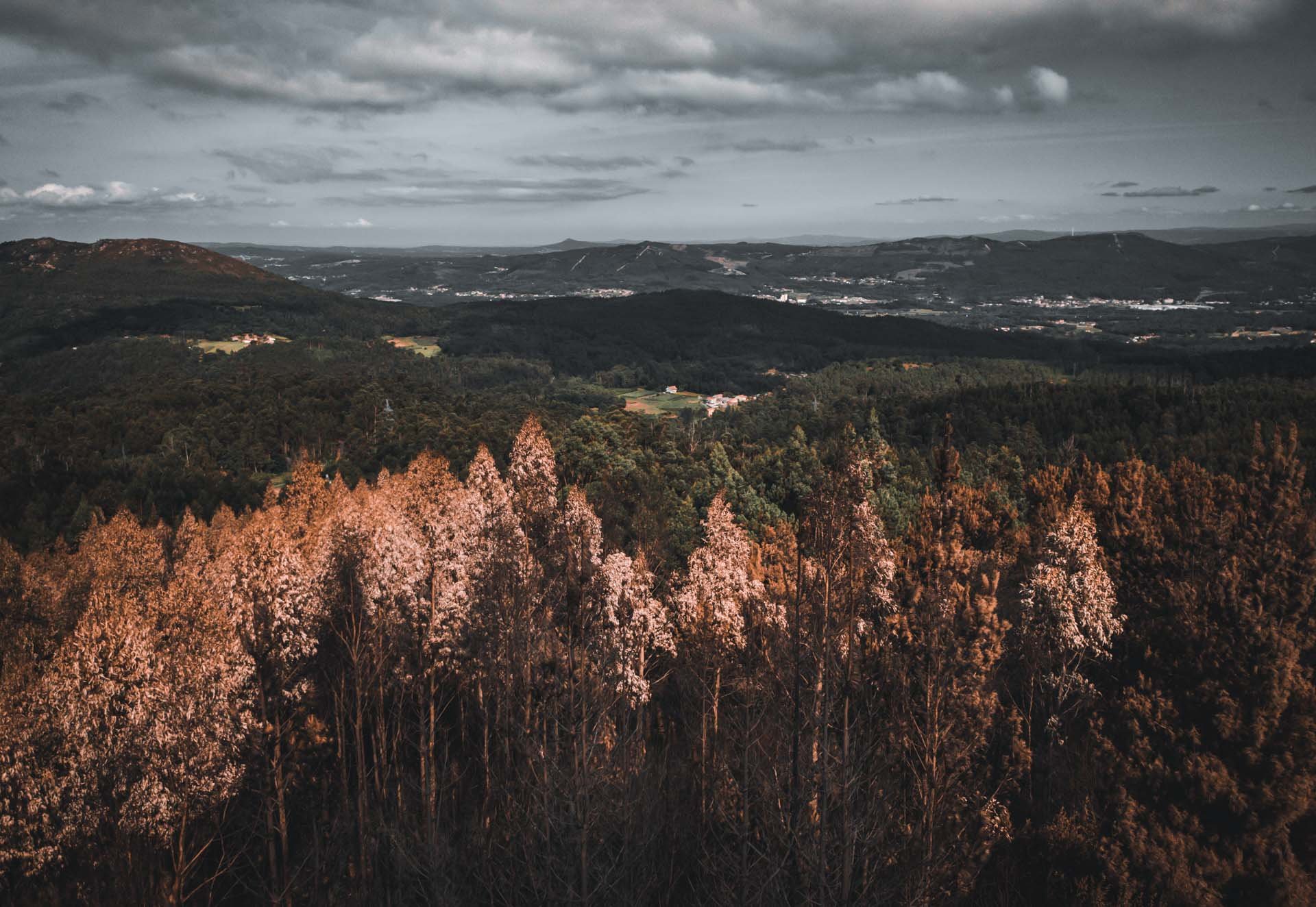

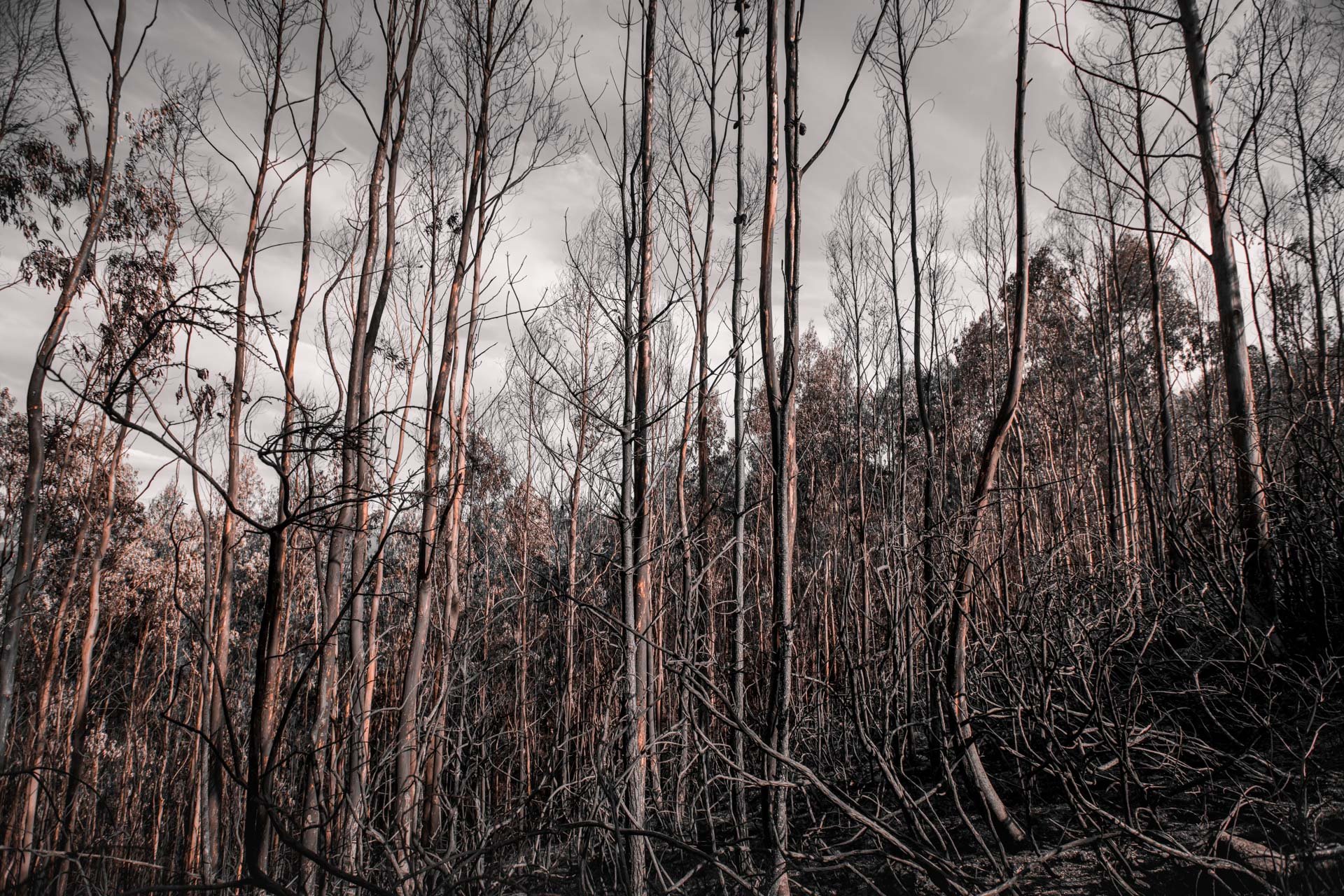
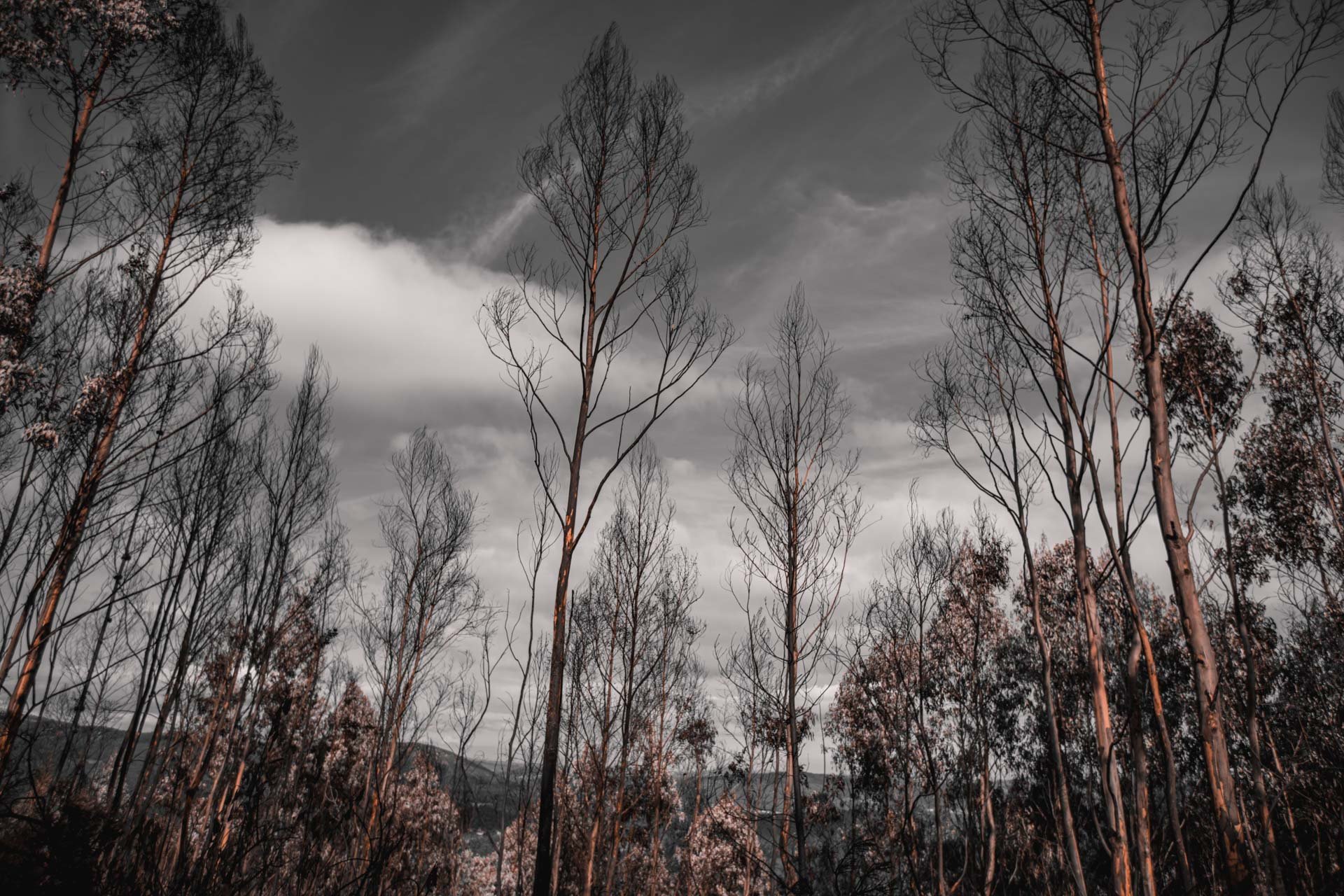
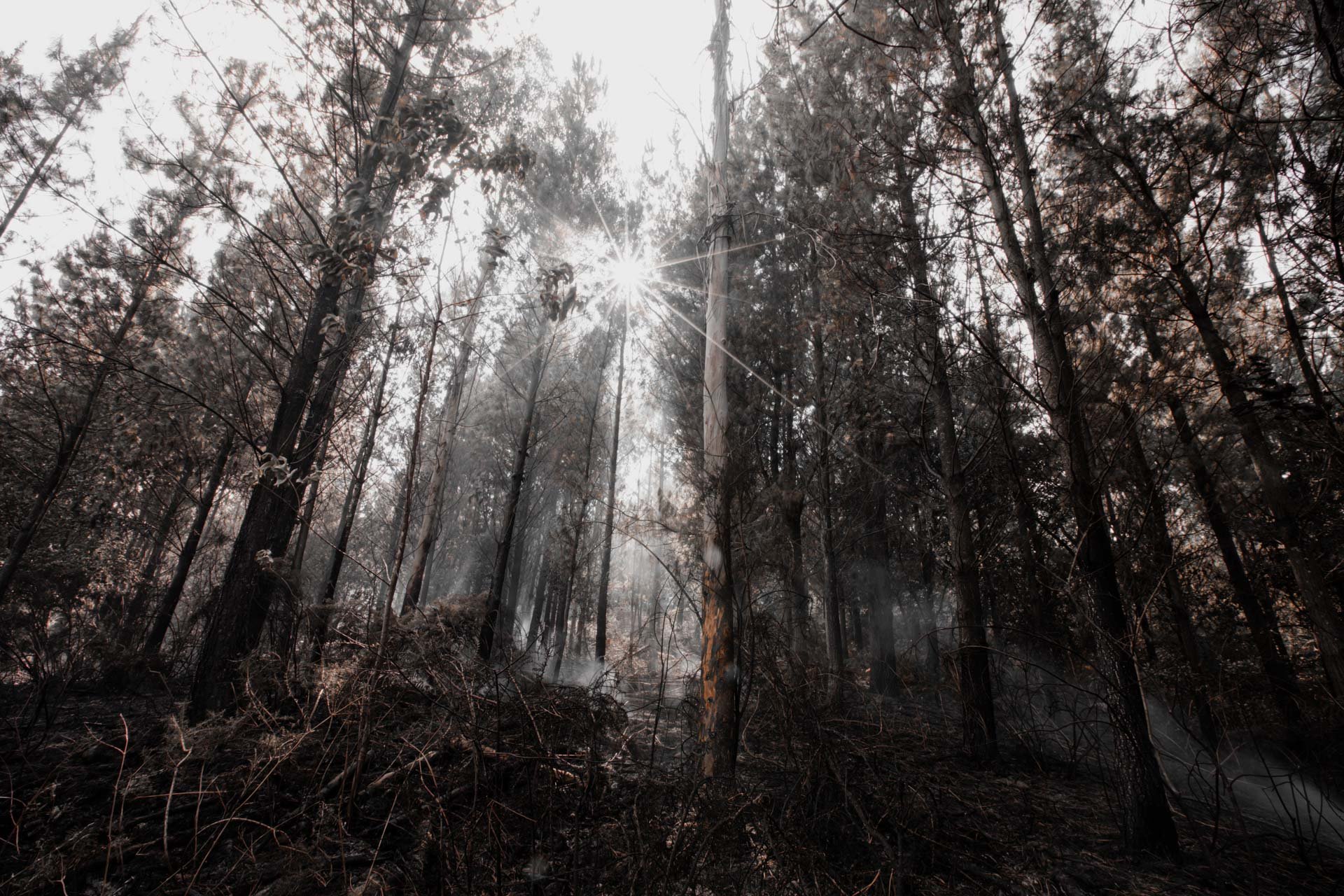
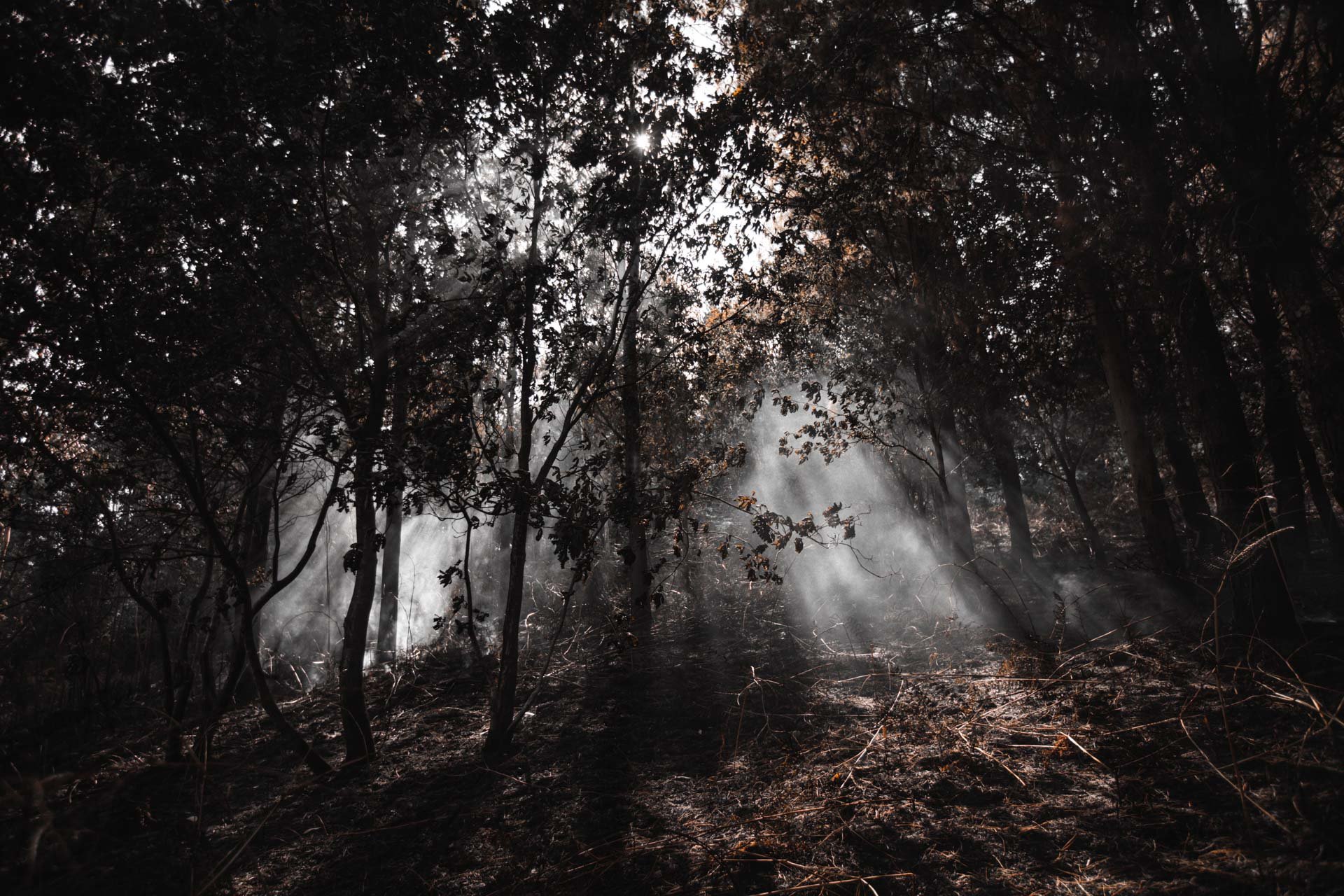
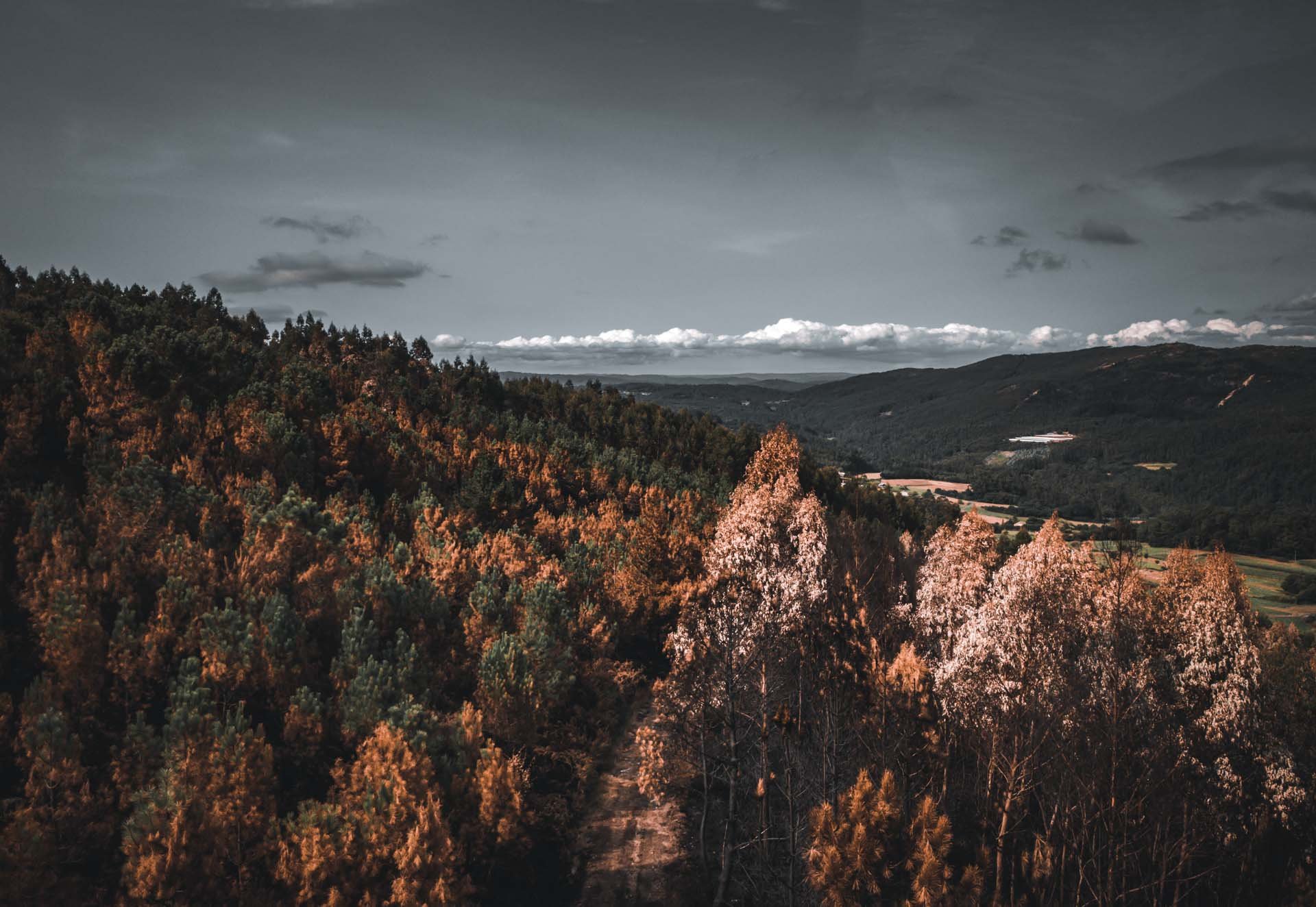
By becoming an uncontrolled pest, opposition has arisen from some of the families of these communities who deny the entry of the species to their lands and protected natural areas. Some of the families of these towns have chosen to clean their areas of Eucalyptus. One of these cooperatives is the community of Froxán, in Spain. Their purpose is to gather and tear the Eucalyptus roots that randomly settle through wind and forced fires.
The “de-ucalyptizer” community prunes the Eucalyptus trees several times a month, but is compromised to visit the same root in order to remove it completely to let the native forest slowly regain its place. Only then will the lands be healthy and natural again, suitable for the autonomous and sustainable cultivation that local communities have carried out for generations.
However, activists cannot remove trees planted on private property and have been forced to respect the decision of their neighbors. Now is when communities divide. Ecologists call it a “cursed tree” and the owners of the plantations “Oro Verde” (Green Gold). This phenomenon is repeated in various places of the world. With green gold we refer to a pattern of different mono cultured plants (Lemon, Avocado, Marijuana) that are being exploited at the expense of the fertility of the earth with the same objective: to supply the market and make it available to the consumer. By identifying ourselves as consumers of polluting industries, how can we be more selective and responsible? We could start by taking full advantage of the resources we already have, recycling them if possible, and questioning ourselves before buying more than what’s necessary. We can start by asking you: What took place to make this product available to me? And; Do I really need it?
Click on the link to learn more about how to make your own paper with recycled materials.
Bibliography::
Pitt, L. (2017) Eucaliptos y pinos: los bosques artificiales que contribuyen a la expansión de los incendios en Chile. BBC World. Accesado el 25 de Noviembre 2021 a través de: https://www.bbc.com/mundo/noticias-38771376


















